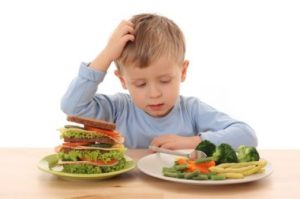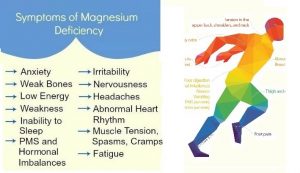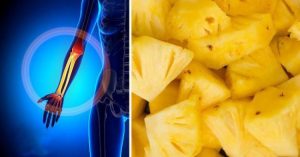Are you struggling to lose weight and maintain a healthy diet? You may have a toxic fatty acid that blocks weight loss.
Here's how a simple “Ice Hack” speed up my fat loss and helped me restore my health, watch now.

When it comes to a healthy diet, vegetables play a crucial role. They are packed with essential nutrients, vitamins, and minerals that support overall well-being. However, a debate has long existed regarding the nutrient content of cooked vegetables versus raw vegetables.
Cooked Vegetables vs Raw Vegetables:
Some argue that cooking can lead to nutrient loss, while others believe that certain nutrients are enhanced through the cooking process. Therefore, here are the advantages of both cooked and raw vegetables and shed light on which form may have more nutrients.
Nutrients Content in Cooked Vegetables
Cooking vegetables can alter their nutrient composition, but it doesn’t necessarily mean a loss of nutrients. In fact, some nutrients become more accessible and easier for the body to absorb after being cooked. For instance, tomatoes are a great source of lycopene, a potent antioxidant known for its potential cancer-fighting properties.
Here’s a table where nutrients increase when cooked:
| Vegetable: | Nutrients that increase when cooked: |
|---|---|
| Spinach | Iron, Calcium, Magnesium, Vitamin A, Vitamin E |
| Tomatoes | Lycopene, Vitamin C |
| Carrots | Beta-carotene, Vitamin A |
| Asparagus | Folate, Vitamin C, Vitamin K |
| Mushrooms | Vitamin D (when exposed to sunlight) |
| Sweet potatoes | Beta-carotene, Vitamin C |
| Pumpkin | Beta-carotene, Vitamin C |
| Broccoli | Vitamin C, Vitamin K, Folate |
| Brussels sprouts | Vitamin C, Folate |
Similarly, carrots, known for their beta-carotene content, show increased availability of this nutrient when cooked. Beta-carotene is converted into vitamin A in the body, which is essential for vision, immune function, and healthy skin. Cooking carrots break down the tough cell walls and makes the beta-carotene more accessible for absorption.
Another example is broccoli, which is rich in vitamin C. While some vitamin C may be lost during cooking due to heat sensitivity, the overall nutrient content remains high. Steaming or stir-frying broccoli helps retain a significant amount of vitamin C, ensuring that this important antioxidant is still present in the cooked vegetable.
Nutrient Content in Raw Vegetables
Raw vegetables have their own set of advantages when it comes to nutrient content. They are rich in certain nutrients that may be more abundant in their raw form. One such nutrient is vitamin C, which is highly sensitive to heat. Raw vegetables like bell peppers, kale, and citrus fruits provide a higher concentration of vitamin C compared to their cooked counterparts.
In addition to vitamin C, raw vegetables also contain enzymes and antioxidants that can be partially destroyed by heat. These enzymes aid digestion and contribute to overall gut health, while antioxidants protect the body against oxidative stress and inflammation.
Water-soluble vitamins like vitamin B and folate are also more prevalent in raw vegetables. These vitamins are sensitive to heat and can be lost during cooking. Consuming raw vegetables ensures a higher intake of these essential nutrients.
FAQs:
- Should I only eat raw vegetables to get the most nutrients? While raw vegetables offer certain benefits, cooking can also enhance the availability of nutrients. It’s recommended to include a combination of raw and cooked vegetables in your diet to maximize nutrient intake.
- Can cooking vegetables destroy all the nutrients? Cooking methods and duration can affect nutrient retention. To minimize nutrient loss, opt for quick cooking methods like steaming or stir-frying, and avoid overcooking vegetables.
- Which vegetables are best eaten raw? Some vegetables are commonly consumed raw, such as leafy greens, bell peppers, cucumbers, and tomatoes. However, personal preference and individual health conditions should also be considered.
- Does the nutrient content of cooked vegetables vary depending on the cooking method? Yes, different cooking methods can influence nutrient retention differently. Some methods, like boiling, may result in more nutrient loss compared to steaming or microwaving.
- Are there any vegetables that are better cooked than raw? Certain vegetables, like tomatoes and carrots, have enhanced nutrient availability when cooked. However, this doesn’t mean they are entirely devoid of nutrients when consumed raw.











